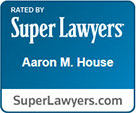When you get your personal injury settlement, various creditors may attempt to assert liens on your settlement that entitles the lien holder to some of your settlement money. While the most common liens are asserted by medical providers and health insurers, two liens arise from personal obligations. These include liens for past-due child support and for case advances.
What is a Child Support Lien?
If your unpaid child support that is past due in any state, the department of children and families in that state can assert a lien on a personal injury settlement in Missouri and Kansas. However, any amount paid from a settlement or judgment toward that past-due support obligation will reduce the total amount of the debt. Although the childsupport enforcement agencies are generally entitled to collect 100% of the amount of the debt from a settlement, which could mean that an injured party could ultimately be left with nothing from their settlement, most agencies will work with an injured party and their attorney so that the party receives a portion and the agency receives a portion on behalf of the child or children.
For example, if you owe $5,000 in past-due child-support payments, and your total personal injury settlement is $20,000, you would receive $15,000, with $5,000 going to the child support obligation. The good news is that you will then be current on the child support obligation. But, unlike some other types of liens (for example, a Medicare lien), a child support enforcement agency cannot take your settlement for future child support that you will be obligated to pay but that is not yet due.
If you have a child-support lien, your personal injury lawyer will work to confirm that the child support lien is valid and will ensure the amount of the past-due balance. And if the amount of the past-due support obligation is higher than the amount of the settlement you will receive, a personal injury attorney can help make sure you receive a fair portion of the settlement as well.
What is a Case Advance?
A case advance is a loan that is secured by your personal injury settlement. Many lenders offer injured people the ability to take out a loan, which will be paid back from a settlement or judgment. While these may be enticing (and are sometimes necessary), many attorneys discourage their clients from taking out these loans because the fees and interest can be very high.
Thus, when you ultimately receive a personal injury settlement, the loan must be paid from the settlement, including all fees and interest. Unfortunately, the interest and fees can often take a significant portion of a settlement, and so these loans should only be taken out when absolutely necessary.
Talk to Your Personal Injury Lawyer
If you have been injured because of another person’s negligence, or if you want to talk with an attorney about making sure any liens are handled appropriately, call Aaron House today for a free consultation at 816-875-4260.
Tags: liens, personal injury
Related Posts: How VA and Tricare Liens May Affect Your Personal Injury Settlement Medicaid Liens on Your Personal Injury Settlement Liens on Your Personal Injury Settlement: Self-Funded ERISA Plans




